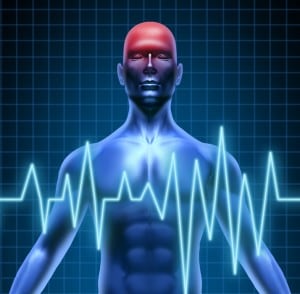Factors that Impact Concussion Recovery: A Look at the Latest Research
August 3, 2017Recovering from a concussion can be more arduous for some patients than others. While that may be due to differences in concussion severity, it can also be related to multiple, patient-specific variables.
Looking to define these variables, a team of researchers recently analyzed the findings of more than 100 clinical studies on sports-related concussions that have been published within the last year.
Their findings, detailed in Predictors of clinical recovery from concussion: a systematic review,1 reveal some important insights regarding the factors that can promote or impede concussion recoveries.
Have You or a Loved One Been Diagnosed with a Traumatic Brain Injury (TBI)?
You are also encouraged to contact the Amaro Law Firm for a free, no obligations case evaluation. Our lawyers are ready to discuss your potential claim, explain the available legal remedies and advocate your rights to recovery.
The Findings: 5 Variables Affecting Concussion Recovery Rates

Factors that Impact Concussion Recovery: A Look at the Latest Research
According to researchers, the following are among the most significant patient-specific factors that can impact concussion recoveries:
- Age – Concussion patients between 13 and 17 years old were associated with the highest rates of persistent symptoms four weeks after sustaining the injury (with nearly 40 percent still experiencing symptoms, as opposed to about 18 and 26 percent for 5 to 7 year olds and 8 to 12 year olds, respectively). This seemingly indicates that teenagers may be the most vulnerable to persistent symptoms and slower recoveries. However, researchers qualified this finding by noting that younger children can lack the cognitive and verbal skills to report and describe symptoms.
- Gender – Females tend to experience slower concussion recoveries than males, according to these researchers. This may be partially due to differences in neck strength. Researchers also suggested that this gender discrepancy may stem from the fact that females are generally more inclined (than males) to report symptoms (immediately after injury, as well as during the recovery process).
- Concussion history – Though researchers did not correlate prior history of concussion with slower recovery rates, they did note that previous concussions can increase the risk of future concussions and persistent symptoms. Consequently, they identified concussion history as an important variable to recovery rates. They also explained that more research should be conducted to better define the potential correlation between concussion history and recovery.
- Mental health – The presence of neurological disorders (like learning disorders and ADHD), as well as mental health issues (like depression), may also impact concussion recovery rates. In fact, researchers found that patients with:
- Neurological disorders tend to have a higher risk of concussion and that they tend to experience more “concussion-like symptoms in their daily lives, in absence of injury.”
- Mental health issues tend to experience persistent symptoms following concussion.
Interestingly, however, researchers did note that mental health is not necessarily correlated with a “great risk for worse outcome or slow recovery following injury” and that “more research is needed to definitively establish this association.”
- Symptom severity – Concussions that cause more acute and subacute symptoms tend to be associated with slower recoveries, persistent symptoms and worse prognoses, according to researchers. In fact, researchers concluded that, “the strongest and most consistent predictor of slower recovery from concussion was greater severity of a person’s acute and subacute symptoms following injury.”
Here, it is important to point out that:
- The studies analyzed by these researchers had “several methodological limitations.”
- Only studies published in English were analyzed.
- These researchers have clearly identified the need for more research to more definitively assess the variables that hinder concussion recoveries.
Find Out More about Your Potential Claim: Contact a Houston Brain Injury Lawyer at the Amaro Law Firm
If you or a loved one has sustained a concussion or more serious TBI, contact a Houston brain injury lawyer at the Amaro Law Firm for more information about your rights and recovery options.
Call (713) 352-7975, text (281) 612-8024 or email our firm for a free case evaluation. If you cannot make it to our offices for this meeting, we offer mobile and virtual consultations.
Compassionate, experienced and resourceful, our attorneys are dedicated to helping the injured people secure the compensation they deserve when others’ negligence has caused them harm. Let us put our skills and experience to work helping you build a strong claim and position it for success.
Our record of providing outstanding representation in TBI (and other personal injury) cases has earned us 5-star ratings on Google and Facebook.
________________________________________________________________________________
1: Published in the June 2017 edition of the British Journal of Sports Medicine (BJSM)
